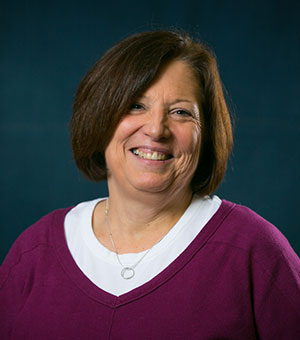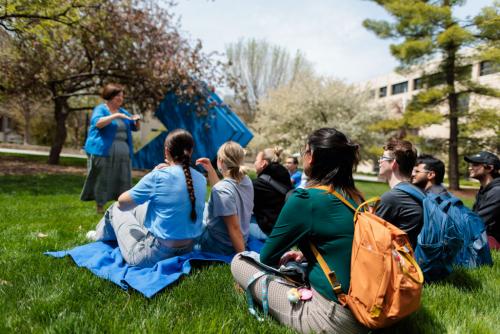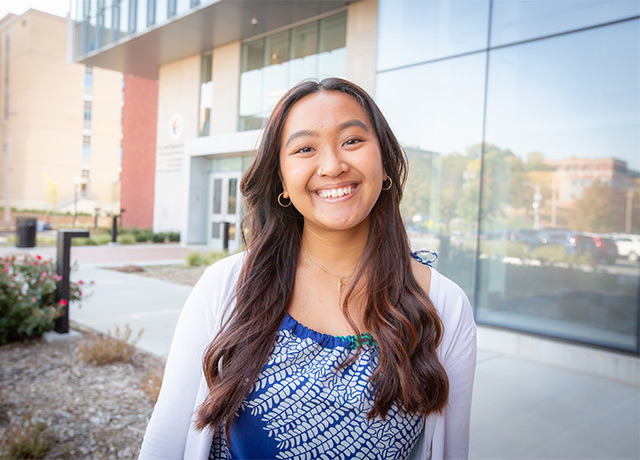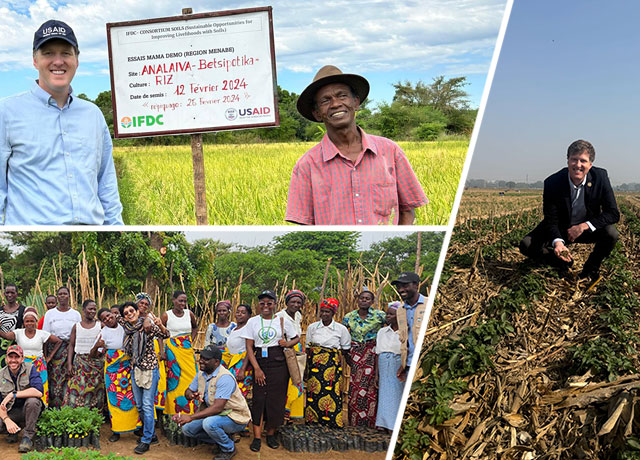Featured Testimonial About Creighton University
I was able to do good work and be recognized for that. I had the ability to be able to explore the things I really wanted to explore and the things I really wanted to do and put students first.
We recently caught up with four retiring faculty members, including Carol Zuegner, BA’77, MS’22, PhD, to learn more about the relationships and experiences that were most meaningful during their time on campus. Zuegner retired in May.

Carol Zuegner
College of Arts and Sciences
What distinguishes Creighton from other institutions? What's special about it?
“In my mind, I do think it's the community and my ability to do a lot of different things and be creative. I didn't follow the traditional kind of path — yet I was awarded an endowed chair. I was able to do good work and be recognized for that. I had the ability to be able to explore the things I really wanted to explore and the things I really wanted to do and put students first. That’s it. Students and teaching are really important at Creighton.”
Tell us about Backpack Journalism. How much did you enjoy those trips?
“It was a five-week program in the summer when students produced a social justice film. It’d be a week of bootcamp here and then we’d go for two weeks. We went to Africa three times. We went to Alaska. We went to the Mexican border. We went to the Dominican Republic. Then we'd come back for a week and a half and do a rough cut of the film.
So, the students would do that, and then Tim Guthrie and John O'Keefe would make it into the finished product. It was great. Very transformative in my academic life. John and Tim were really the film people, but I could help a lot with story development and interviewing techniques. It was really cool.”
What stories stand out?
“We went to Uganda, the border with Uganda and South Sudan. We did a refugee story, and we did a story about the impact of the civil war in Uganda. In Alaska, it was kind of an environmental story. But it was really good. John O'Keefe really organized all these, and we had Jesuit connections with most of them. All of the films were at least in the Omaha Film Festival, and they won some awards. They were good films and really fun to work on.”
What will you remember most about advising the Creightonian from 1997 to 2014?
“You were always kind of nervous Friday morning, waiting to see what's going to be in the paper. I was there with the students. I work with them. But it was all them. They made the decisions.
“The students had to go see Fr. John Schlegel, SJ, one time. He was upset about something. So they talked to him and ended up writing a small correction. They said he had a big, shiny desk.”
It's such an interesting role, as an advisor, especially someone who has professional experience in newsrooms. But not impact the final product?
“I did read the Creightonian stories and would say, ‘This needs to be better’ or ‘you need another source.’ But I never said they couldn't run something. I might have said, ‘you shouldn't run this until you talk to somebody else.’ Just to make sure, and this happens with all reporters, that they really understood what they were doing. But yes, mostly, I would just make a lot of faces.
“The students did a great job. They won awards for their work. I would come on production night and stay until about 9:30 p.m. or so. And sometimes they’d still be working on stories, so I’d help encourage them and such.”

I’m sure you’ll miss that, just the interactions with students.
“Most of my work at Creighton, like being advisor of the Creightonian, took the form of mentoring and a coaching students. I got to know them. And then when I saw how much journalism was changing, I realized I needed reverse mentors. I needed former students working professionally to tell me what I should be teaching and what our students needed to know.
"Eventually, we started having these ‘social media’ meetups, and then it just became … meetups. I’d say, ‘let’s meet at DJ’s Dugout and you guys tell me what I should be teaching and doing.’
“Teaching forced me to learn, and continue to learn. I wanted to show students that they also had to be lifelong learners. When I was a student here and studying in the same classroom they're in, I was on a typewriter. Now, I'm teaching, and here's a phone and we can do everything on our phones. I could have never, within my wildest dreams, predicted that in 1977 when I was in the lab downstairs working.
"So, I think that it's actually been a good thing to talk to students about, their jobs are going to change, and they need to keep learning and doing different things. So even as they see me struggling with TikTok or something, it’s a good lesson. Something changes every day. How are you going to deal with that?”


